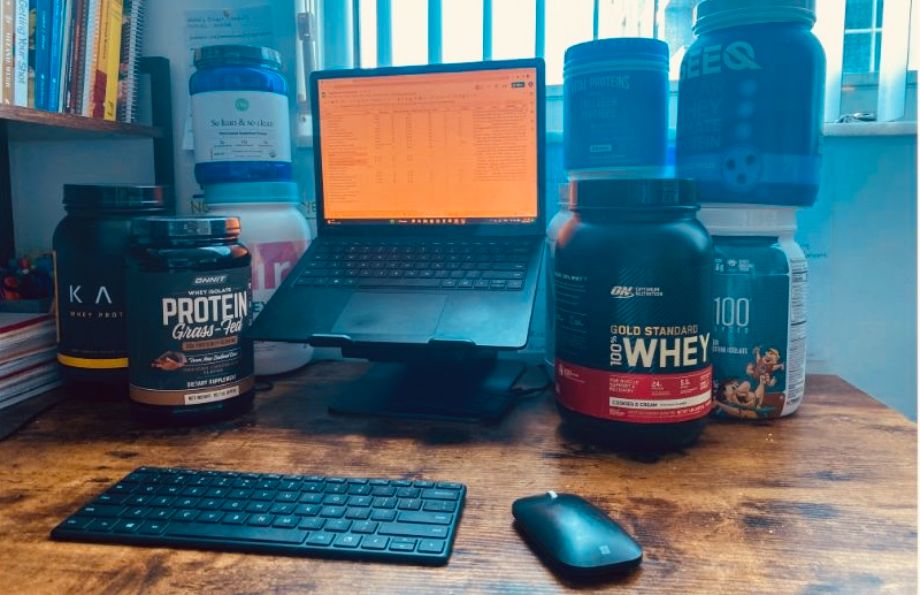Protein is the king of macronutrients for people who are looking to build muscle. Dietary protein consumption drives muscle protein synthesis (MPS) thanks to its amino acid content, which ultimately results in the repair of muscle tissue and, if you’re eating enough and resistance training, new muscle growth.
But simply eating a ton of extra protein at every meal may not get you the muscle-building results you want.
There is such a thing as excess protein intake, because the amount of protein your body can actually utilize is limited by the absorption rate—not necessarily in the sense that it will hurt you (we’ll cover that later), but in the sense that if you’re vastly exceeding the protein needs for your activity level and body size, you could be wasting money on supplements or unhappily forcing yourself to eat ultra high-protein meals when you don’t need to.
In this guide, we’ll answer the burning question, “How much protein can your body absorb?” as well as cover recommendations for daily total protein intake for supporting lean body mass, muscle gain, weight loss, and other goals.
RELATED: Best Protein Shakes
Medical disclaimer: This article is intended for educational and informational purposes only. It is not intended as a substitute for medical advice. For health advice, contact a licensed healthcare provider.
Protein Digestion and Protein Absorption Process
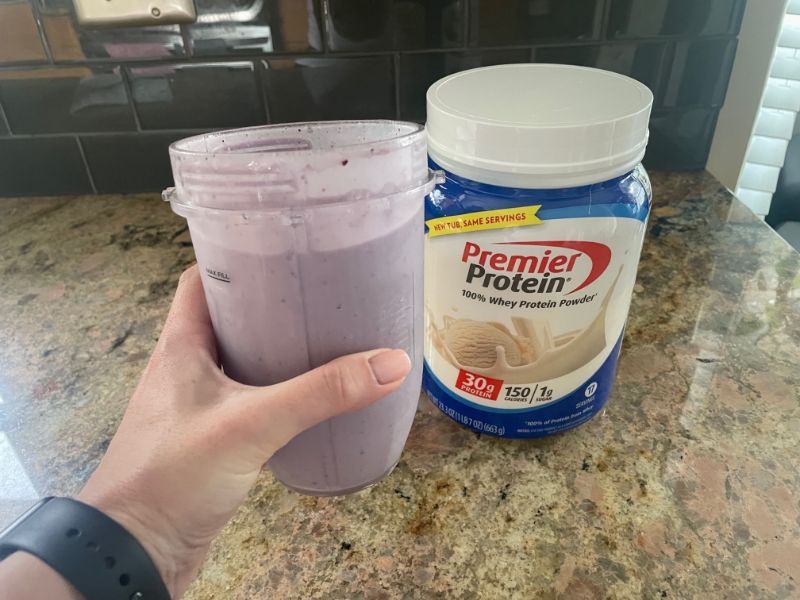
To understand how much protein your body can absorb, it’s helpful to first understand what happens in your body when you consume protein. Here’s a simplified version of the protein metabolism process.
According to the National Academy of Sports Medicine’s Certified Sports Nutrition Coach course1, protein digestion occurs in four distinct steps at four distinct locations in the body.
- In the mouth, whole proteins are broken down by mechanical digestion (chewing) and saliva.
- In the stomach, whole proteins are broken down into smaller molecules called peptides, thanks to the assistance of proteases, which are digestive enzymes that break the bonds in whole proteins.
- In the small intestine, those peptides are further broken down into amino acids, including branched-chain amino acids and other essential amino acids (depending on the food consumed), which you’ve likely heard referred to as the building blocks of protein.
- Finally, in the intestinal lining, active absorption of those amino acids occurs, which is how they enter your bloodstream and are subsequently delivered to various parts of the body, including skeletal muscle tissue.
Digesting proteins, no matter if they come from a whey protein shake or a whole-food plant-based protein, always follows that four-step process.
How Much Protein Is Enough Protein?
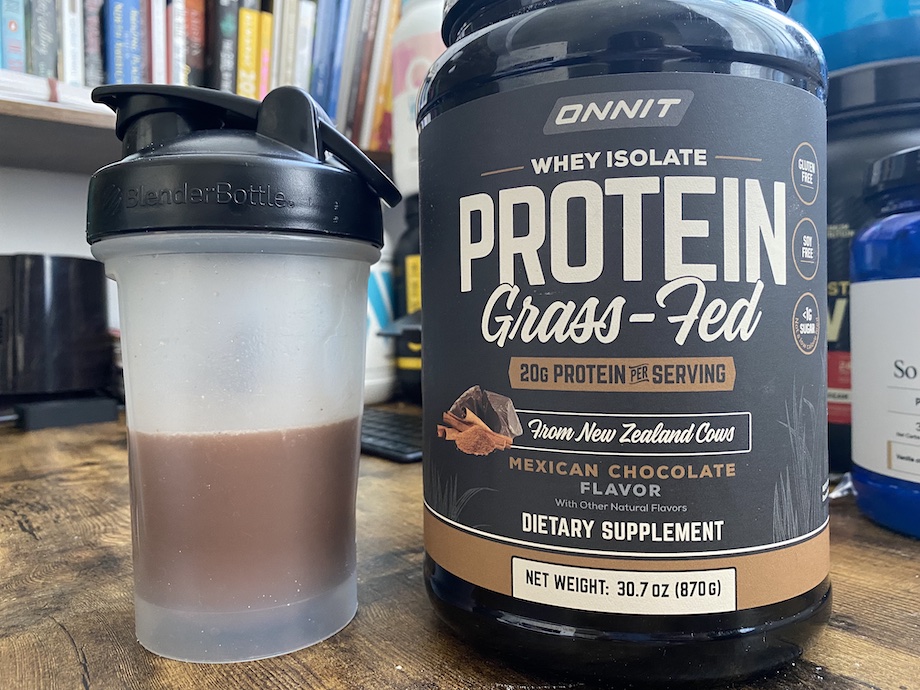
Before diving into how much protein the body can absorb, it’s also helpful to know daily protein requirements, aka how many grams of protein per day you should be eating.
Firstly, you should know that there’s a big difference between adequate protein intake for healthy adults and optimal intake for people pursuing hypertrophy, or increased muscle mass—or any athletic or performance goal, for that matter.
We’ll start with the former. According to the USDA and U.S. Department of Health and Human Services (USHHS), the recommended daily allowance (RDA) for protein is 0.8 grams of protein per kilogram of body weight2. Under these guidelines, a person weighing 150 pounds would need 55 grams of protein per day. This leads us to conclude that the human body can absorb at least that much protein per day, then.
Sounds low, right?
That’s because RDAs are designed to reflect how much of a nutrient a person needs to maintain physiologically necessary functions for survival—not for bodybuilding or deadlifting 600 pounds.
As explained in our guide “How Much Protein Do I Need?,” recommendations for protein intake range from the RDA all the way up to 2.2 grams of protein per kilogram of bodyweight per day. At the high end of the range, the same 150-pound person would consume about 136 grams of protein.
Remember that needs vary based on weight and activity level.
Defining Protein Absorption
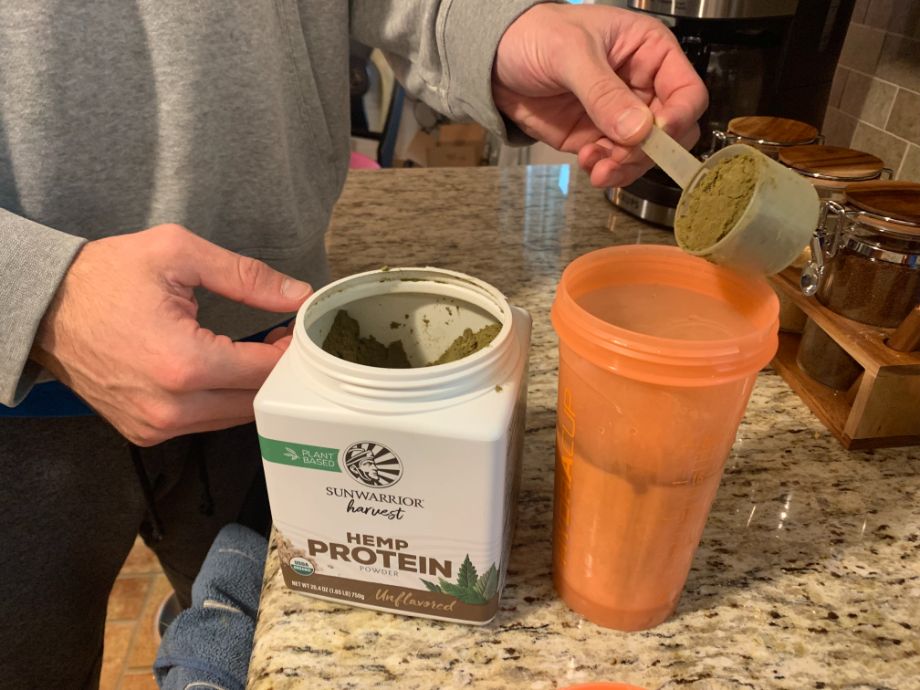
Let’s first differentiate between absorption and utilization. For the purposes of this article, I’m assuming that by asking the question, “How much protein can your body absorb?” you’re actually asking, “How much of the protein that I eat can my body use for muscle-building purposes?”
In my experience as a certified personal trainer and certified nutrition coach, this is always what people mean when they ask this question. Physiologically, the term “absorption” refers to when a nutrient passes from the gastrointestinal tract to the bloodstream. In this sense, protein absorption is virtually limitless. But that’s not the question we are answering here.
How Much Protein Your Body Can Absorb

Though it may seem counterintuitive, eating as much protein as you possibly can at a single meal isn’t the best strategy to maximize your high-protein diet.
According to the current scientific consensus, “muscle protein synthesis is maximized in young adults with an intake of about 20 to 25 grams of a high-quality protein” in one sitting, as stated in a 2018 report in the Journal of the International Society of Sports Nutrition3. For the purposes of this article, “one sitting” refers to one to two hours.
That paper goes on to conclude that the per-meal “upper anabolic threshold”—defined as how much protein your body can and will use for muscle-building purposes per meal—is a minimum of 0.4 grams of protein per kilogram of body weight per meal, spread out across four meals.
Following those guidelines, you’d end your day with a total of 1.6 grams of protein per kilogram of body weight, which falls squarely into the range recommended for active people. On the high end, the authors of the paper suggest a maximum of 0.55 grams of protein per kilogram of body weight per meal, ultimately reaching 2.2 grams of protein per kilogram of body weight for the day.
Practically, this would look like the commonly recommended protocol of consuming 20 to 25 grams of protein at each meal, across four to six meals, depending on your total goal and needs.
Other research supports this:
- In 2013, a study4 conducted on young men found that, of several groups who consumed 80 grams of whey protein per day, those who followed a protocol of four servings of 20 grams experienced the greatest muscle protein synthesis.
- In 2012, researchers concluded5 that in order to maximize one’s net balance of protein, a dosage protocol of 20 grams every three hours, four times, is recommended (as opposed to 80 grams at once, eight servings of 10 grams, and two servings of 40 grams).
That said, the researchers of the 2018 literature review3 conclude by saying that this recommendation “should not be viewed as an ironclad or universal limit beyond which protein intake will be either wasted or used for physiological demands aside from muscle growth.”
As is often the case, further research is warranted.
Well, What About Different Types of Protein and Other Nutrients?

Good question. If you’re researching topics like how much protein your body can absorb, you’re likely already aware that there are different types of proteins that digest differently, and that consuming multiple nutrients at a time can affect the rate of digestion and absorption.
For example, whey protein is known as a fast-digesting protein, whereas its cousin casein is a slower-digesting protein.
In the 2018 literature review3 cited above, the researchers plainly state that their findings are “specific to the provision of fast-digesting proteins without the addition of other macronutrients.” Specifically, most research on this topic has been conducted with whey protein powder.
RELATED: Best protein powder
“Consumption of slower-acting protein sources, particularly when consumed in combination with other macronutrients, would delay absorption and thus conceivably enhance the utilization of the constituent amino acids,” the researchers wrote.
This is actually good news for people who want to eat more protein. Consuming a meal with all three macronutrients (protein, fats, and carbohydrates) can slow digestion and absorption, giving your body more time to utilize the amino acids from protein breakdown.
One interesting comparison is the absorption rate of whey protein versus cooked egg protein. While research shows that whey protein can be absorbed at a rate of about 10 grams per hour6, cooked egg protein absorbs at a rate of just 3 grams per hour6.
So, a serving of scrambled eggs with 20 grams of protein would take more than 6.5 hours to fully absorb, while a whey shake with 20 grams of protein would absorb in just two hours. Theoretically, this means that your body has more time to deal with the amino acids from egg protein and put them to anabolic use—that said, it remains unclear how this affects skeletal muscle growth.
RELATED: Best Whey Protein Powder
What Happens to the Extra Protein?
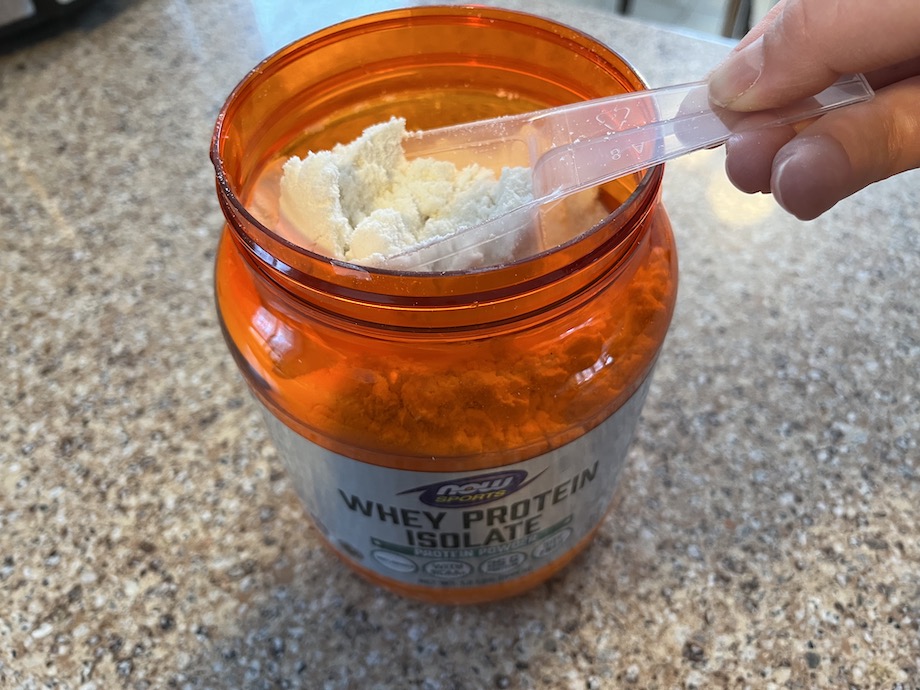
So, what goes down in your body when you eat, say, 50 grams of protein at one meal? According to the 2018 study in the Journal of the International Society of Sports Nutrition3, three things can happen to excess protein that your body doesn’t use for anabolic purposes:
- It’s oxidized, turned into lipids (fats) or glucose (carbs) and used for energy.
- It’s excreted as urea, the main metabolic byproduct of protein breakdown. Urea is excreted primarily in urine but also in sweat.
- It’s turned into other organic acids that are used for other purposes or excreted as waste.
Final Thoughts: How Much Protein Can Your Body Absorb?
When you consume more protein than can be absorbed and utilized for muscle growth in one sitting, the excess is oxidized for energy, excreted as waste, or turned into other organic acids.
So, the best strategy is equal protein distribution throughout all of your daily meals. The most common recommendation is to try to eat 20 to 25 grams of protein per meal across three to six meals/snacks per day, depending on your nutrition goals, in order to ultimately consume 1.6 to 2.2 grams of protein per kilogram of body weight daily.
Q&A: How Much Protein Can Your Body Absorb?
What Happens If You Eat Too Much Protein?
As registered dietitian nutritionist Perry Nix states in our guide “How Much Protein Is Too Much?” overdoing protein intake can be “wasteful, ineffective, and even harmful.”
Eating just a little more protein than you need or can utilize isn’t likely to do anything at all if you are a healthy, active individual with no chronic health conditions. However, people with chronic health conditions, especially conditions that affect the kidneys, should talk to a dietitian about protein intake before ramping up past the tolerable upper limit of 2 grams per kilogram of body weight per day.
What is more important, protein or amino acids?
Amino acids are what make up whole proteins. While they are not one and the same, they are both important. What’s especially important is making sure that you consume all nine essential amino acids, including the branched-chain amino acids leucine, isoleucine, and valine, since all of them are required for muscle protein synthesis and other physiological functions.
Does eating more protein help you lose weight?
Eating more protein may help you lose weight by helping you regulate your appetite. It can also create the illusion of weight loss over time by helping you reach body composition goals. When you gain muscle and lose body fat, you may not actually lose weight, but you will develop an athletic physique and look leaner.
These statements have not been evaluated by the Food and Drug Administration. This product is not intended to diagnose, treat, cure, or prevent any diseases.
References
- National Academy of Sports Medicine. Certified Sports Nutrition Coach (NASM-CSNC).
- U.S. Department of Health and Human Services, National Institutes of Health, Office of Dietary Supplements. Nutrient Recommendations and Databases.
- Schoenfeld BJ, Aragon AA. How much protein can the body use in a single meal for muscle-building? Implications for daily protein distribution. J Int Soc Sports Nutr. 2018;15:10. Published 2018 Feb 27. doi:10.1186/s12970-018-0215-1
- Areta JL, Burke LM, Ross ML, et al. Timing and distribution of protein ingestion during prolonged recovery from resistance exercise alters myofibrillar protein synthesis. J Physiol. 2013;591(9):2319-2331. doi:10.1113/jphysiol.2012.244897
- Moore DR, Areta J, Coffey VG, et al. Daytime pattern of post-exercise protein intake affects whole-body protein turnover in resistance-trained males. Nutr Metab (Lond). 2012;9(1):91. Published 2012 Oct 16. doi:10.1186/1743-7075-9-91
- Bilsborough S, Mann N. A review of issues of dietary protein intake in humans. Int J Sport Nutr Exerc Metab. 2006;16(2):129-152. doi:10.1123/ijsnem.16.2.129




